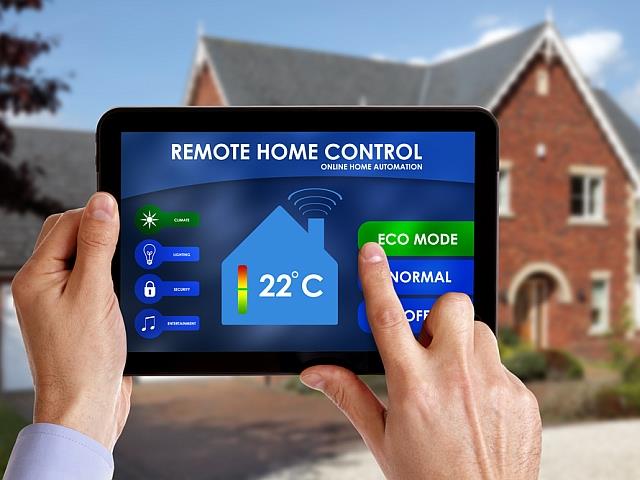
In recent years, the concept of the smart home has evolved from a futuristic vision to a tangible reality. As technology continues to advance, our homes are becoming increasingly intelligent, connected, and responsive. But what does the future hold for smart homes? In this blog post, we’ll explore the emerging trends, technologies, and possibilities that will shape the smart homes of tomorrow.
1. The Rise of Artificial Intelligence (AI)
Artificial Intelligence is set to play a pivotal role in the future of smart homes. AI-powered systems will enhance the functionality and efficiency of smart home devices. Imagine a home that not only responds to your voice commands but also learns from your habits and preferences. For instance, AI could analyze your daily routines to optimize energy usage, adjust lighting and climate settings, or even suggest improvements based on your lifestyle.
Voice assistants like Amazon’s Alexa and Google Assistant are already familiar to many of us, but future iterations will be far more advanced. They will be able to understand context, anticipate needs, and provide personalized recommendations. AI will also enable smarter home security systems that can recognize familiar faces, detect unusual activities, and even predict potential threats based on behavioral patterns.
2. Seamless Integration and Interoperability
As the number of smart devices in our homes increases, interoperability and seamless integration will become crucial. Future smart homes will feature platforms that unify various devices and systems, allowing them to work together harmoniously. This means you’ll be able to control your lighting, heating, security, and entertainment systems from a single interface, whether it’s a smartphone app, a voice command, or an automated schedule.
The development of universal standards and protocols will be key to achieving this level of integration. Companies and developers will need to collaborate on creating open standards that ensure compatibility across different brands and technologies. This will not only enhance the user experience but also drive innovation in the smart home industry.
3. Enhanced Energy Efficiency and Sustainability
As concerns about climate change and resource conservation grow, smart homes will play a significant role in promoting energy efficiency and sustainability. Future smart homes will be equipped with advanced energy management systems that optimize the use of resources and reduce waste.
For example, smart thermostats will be able to analyze weather forecasts and adjust temperature settings accordingly. Solar panels and battery storage systems will integrate seamlessly with home energy management systems, allowing homeowners to generate, store, and use renewable energy more effectively. Smart appliances will also become more efficient, reducing their energy consumption and environmental impact.
4. Advanced Home Security and Privacy
Home security will continue to be a top priority for smart homes. Future advancements will include more sophisticated security systems that use a combination of AI, biometrics, and advanced sensors to protect homes. Smart locks, doorbell cameras, and motion detectors will work together to provide a comprehensive security solution.
Privacy concerns will also be addressed with enhanced data protection measures. As smart home devices collect vast amounts of personal data, it will be essential to implement robust security protocols to safeguard this information. Encryption, secure authentication, and transparent data policies will be critical in ensuring that homeowners have control over their personal data and are protected from potential breaches.

5. Personalized and Adaptive Living Spaces
The future of smart homes will also bring a more personalized and adaptive living experience. Smart homes will be able to adjust their environments based on individual preferences and needs. For example, lighting and temperature settings could be customized for different activities or times of day. Smart furniture and fixtures may also adapt to your preferences, providing greater comfort and convenience.
Additionally, smart homes will be designed to accommodate the needs of diverse households, including those with disabilities or special requirements. Assistive technologies, such as voice-controlled systems and automated adjustments, will make homes more accessible and inclusive.
6. The Internet of Things (IoT) and Beyond
The Internet of Things (IoT) has been a driving force behind the growth of smart homes, but the future promises even more advanced connectivity. Beyond IoT, emerging technologies such as 5G and edge computing will enhance the capabilities of smart home devices.
5G networks will provide faster and more reliable connectivity, enabling real-time communication between devices and systems. Edge computing will allow data processing to occur closer to the source, reducing latency and improving the performance of smart home applications. Together, these technologies will create a more responsive and efficient smart home environment.
7. The Role of Smart Homes in Health and Wellness
Smart homes will increasingly focus on enhancing health and wellness. Future smart home systems will monitor and support various aspects of well-being, from air quality and sleep patterns to physical activity and mental health. For instance, smart sensors could track indoor air quality and alert homeowners to potential pollutants or allergens. Check this piece of content to find more tips and ideas about the future of smart homes.
Wearable devices and health-monitoring systems will integrate with smart home technology to provide a holistic view of personal health. Automated adjustments, such as optimizing bedroom conditions for better sleep or providing reminders for medication, will contribute to a healthier lifestyle.
8. The Ethical and Social Implications
As smart homes become more advanced, ethical and social implications will come into play. Issues such as data privacy, security, and the digital divide will need to be addressed. Ensuring that smart home technologies are accessible to all and do not exacerbate existing inequalities will be essential.
Moreover, the reliance on smart technology may raise concerns about dependency and the potential loss of traditional skills. It will be important to strike a balance between embracing technological advancements and preserving the human aspects of home life.
Conclusion
The future of smart homes is an exciting and rapidly evolving field, with endless possibilities for innovation and improvement. From AI-driven automation to enhanced energy efficiency and personalized living spaces, the smart homes of tomorrow will offer unprecedented convenience, comfort, and security. As technology continues to advance, it will be crucial to address the ethical and social implications, ensuring that smart homes contribute positively to our lives and society.
Embracing these advancements with an open mind and a thoughtful approach will pave the way for a future where our homes are not only smarter but also more connected, sustainable, and inclusive.
Written by Amy M. Cardenas
Like Us On Facebook








